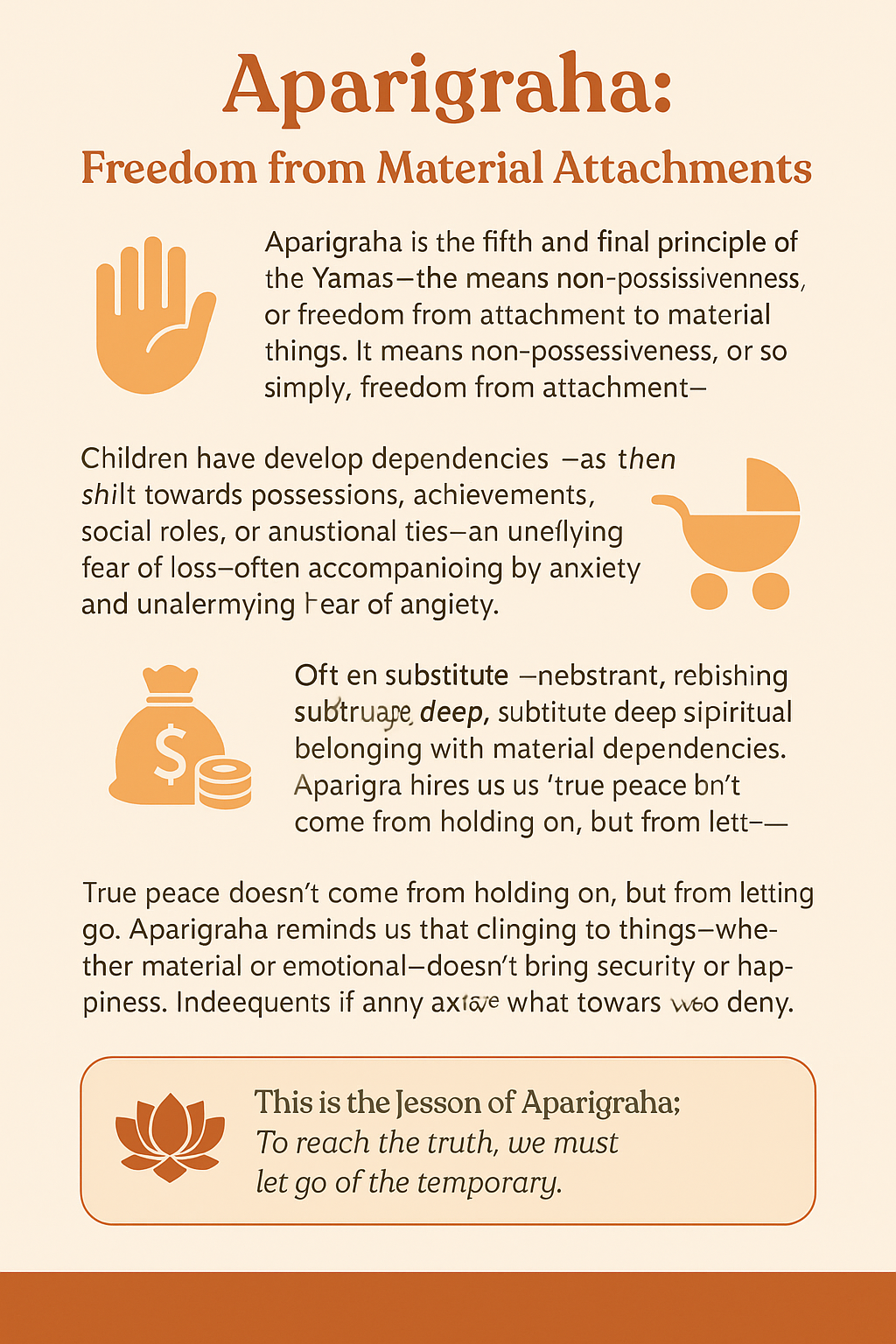Aparigraha: Freedom from Material Attachments
Aparigraha is the fifth and final principle of the Yamas—the foundational ethical teachings of yoga. It means non-possessiveness, or more simply, freedom from attachment to material things.
Attachment can take many forms: to physical objects, to wealth and fame, to job titles, time, beliefs, memories, or even relationships. These attachments can prevent us from connecting to our deeper self—the source of our being.
From birth, we develop dependencies. A newborn is completely reliant on the mother. As we grow, our attachments evolve—shifting toward possessions, achievements, social roles, or emotional ties. But all forms of attachment carry an underlying fear of loss, often accompanied by anxiety and suffering.
Even during transitions—from one attachment to another—humans tend to feel unsettled. Although our true nature is inherently spiritual, we become entangled in the material currents of life and forget our inner origin. Over time, we substitute deep spiritual belonging with surface-level dependencies that never truly satisfy.
Yoga teaches that true peace doesn’t come from holding on, but from letting go. Aparigraha reminds us that clinging to things—whether material or emotional—doesn’t bring security or happiness. Instead, it leads to constant worry: protecting what we have or fearing its loss.
Aparigraha frees us from this trap.
When we release our grip on possessions and expectations, we create space for clarity, peace, and authentic joy. In doing so, we begin to reconnect with our essence—and live from a place of truth rather than illusion.
This is the lesson of Aparigraha:
To reach the truth, we must let go of the temporary.

